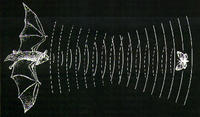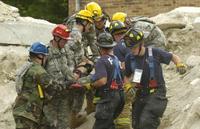-
Tech breakthrough allows first responders to carry mini resuscitators
Thanks to PerSys Medical, first responders operating in rugged terrain are now able to carry a miniaturized version of a critical medical device that helps patients breathe
-
-
Serving and protecting – and saving money in the process

As municipalities battle tight budgets and rising gasoline prices, law enforcement fleets across in the United States have found a way to save taxpayer dollars by shifting to clean-burning, American-made propane autogas
-
-
Sprint customers first to receive wireless emergency alerts
Thanks to Sprint, the Federal Emergency Management Agency (FEMA) will now be able to broadcast wireless emergency alerts to cell phones for the first time; the move allows FEMA, the president of the United States, the National Weather Service, or local and state emergency officials to broadcast warning messages and safety information through text messages
-
-
Surveillance plane to circle Lancaster ten hours a day

Beginning in May, a Cessna 172 airplane will hover over the Lancaster, California for ten hours a day collecting intelligence and keeping an eye on residents; the surveillance program was recently approved by city leaders in an effort to fight crime, but the prospect of aerial surveillance has critics concerned about privacy violations
-
-
Sector Report for Tuesday, 15 November 2011: Law Enforcement Technology
This report contains the following stories.
Plus 1 additional story.
-
-
Technology helps Detroit fight crime
Detroit Police Chief Ralph Godbee Jr. credits new technology and tactics for helping to reduce homicides by 15 percent
-
-
Drones and privacy
With civilian unmanned surveillance drones now capable of listening in on cell phone conversations, monitoring Wi-Fi traffic, seeing into backyards and windows not visible from the street, and tracking a person’s movement privacy advocates are concerned that the rapid advances in technology could violate privacy rights
-
-
Montgomery County adds drone to arsenal
For local police departments who do not have a helicopter unit or cannot afford one, small unmanned aerial vehicles (UAVs) are quickly becoming a cheap solution; the Montgomery County Sheriff’s Office in Texas recently purchased the ShadowHawk, a small remote controlled helicopter manufactured by Vanguard Defense Industries
-
-
Nature inspires advances in ultrasound technology

Sonar and ultrasound, which use sound as a navigational device and to paint accurate pictures of an environment, are the basis of many technologies, including medical ultrasound machines and submarine navigation systems; when it comes to more accurate sonar and ultrasound, however, animals’ “biosonar” capabilities still have the human race beat – but not for long
-
-
Glitches in nationwide emergency alert test
Last Wednesday the United States conducted its first ever nationwide test of its emergency alert system, but based on reports the test did not go smoothly; instead of hearing the alert tone as the emergency alert title card was being displayed, some DirectTV subscribers were treated to Lady Gaga’s “Paparazzi”
-
-
Budget cuts force Nevada to reconsider security priorities
Next fiscal year Nevada will be forced to adapt to a 47 percent cut in DHS funding. To prepare for this new financial reality, Nevada governor Brian Sandoval has called for a reassessment of the state’s homeland security priorities
-
-
Brazilian fern inspires waterproof coating
A floating weed that clogs waterways around the world has at least one redeeming feature: it has inspired a high-tech waterproof coating intended for boats and submarines
-
-
Prison systems vulnerable to cyberattack

At the recent Hackers Halted convention in Miami, researchers John J. Strauchs and his daughter Tiffany Strauchs Rad told the audience how with only $2,500 and some basic equipment, they were able to develop a cyberattack on a simulated prison computer system with potentially catastrophic results
-
-
New Jersey first responders prohibited from taking crash scene photos
New Jersey lawmakers are currently considering a bill that would make it illegal for first responders to take pictures or videos of an accident and distribute them without the permission of the victim’s family; under the proposed law, any first responder who circulates an accident photo or video without permission could face as much as eighteen months in jail or a $10,000 fine
-
-
Operation Vigilant Guard tests Arizona disaster response

More than 250 agencies and 8,000 emergency personnel recently participated in “Operation Vigilant Guard,” one of the largest emergency response exercise in Arizona’s history; participants were forced to respond to two scenarios — a catastrophic flood and the detonation of a ten-kiloton Improvised Nuclear Device (IND) in the Phoenix metropolitan area
-
More headlines
The long view
Why Ukraine’s AI Drones Aren’t a Breakthrough Yet
Machine vision, a form of AI, allows drones to identify and strike targets autonomously. The drones can’t be jammed, and they don’t need continuous monitoring by operators. Despite early hopes, the technology has not yet become a game-changing feature of Ukraine’s battlefield drones. But its time will come.
